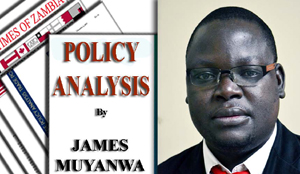 I HAD last week deliberately started the discussion on the Economic Partnership Agreements (EPAs) because of the African, Caribbean and Pacific (ACP) States- European Union (EU) Council of ministers meeting, which starts tomorrow in Belgium.
I HAD last week deliberately started the discussion on the Economic Partnership Agreements (EPAs) because of the African, Caribbean and Pacific (ACP) States- European Union (EU) Council of ministers meeting, which starts tomorrow in Belgium.
The two-day high-level meeting between the ACP and EU being held in Brussels has been preceded by the ACP Council of Ministers, which started yesterday at ACP House in the Belgian Capital and ends today.
Writing from Brussels where I am covering the two meetings on the invitation of the ACP Group, I will continue to discuss issues pertaining to EPAs.
I will try and move the discussion on some of the aspects of the EPAs which I mentioned last week, albeit a lot of the questions will have only been answered by the end of the ACP-EU Council of ministers’ meeting.
Like I indicated last week, for now, there are more questions than answers on the EPAs and these questions are seemingly coming from the ACP member countries.
It is, therefore, for this reason that the EU is viewed by most observers as the provider of the answers to the many questions exercising the minds of officials from the many ACP member countries.
As late as April this year, a director in Zambia’s ministry of Commerce, Trade and Industry said that Africa’s second largest copper producer and some other African countries are finding it difficult to sign the EPAs before fully industrialising their economies.
Tobias Mulimbika, who is in charge of industry, told Times of Zambia that the country was taking the negotiations for the EPAs cautiously to ensure a famous “win-win situation” with the European community.
According to him it was important for Zambia to add value and industrialise the economy to take advantage of the trade opportunities under EPAs.
Zambia would want to have a more comprehensive negotiation with the European community for it to benefit from trade and technological transfer.
While I cannot say whether that is the position the Zambian delegation led by Deputy Commerce, Trade and Industry minister Miles Sampa, will present during the meeting here, I know for a fact that a lot of experts both outside and within the government share that thought.
A critical question, however, is what is Zambia currently doing towards the industrialisation and value addition.
Is the country making any strides in terms of ensuring that it has a lot of value-added products to export to the EU market?
If yes, up to what extent? If not, how long is it going to take for it to industrialise and start enjoying the “benefits” of EPAs?
Apart from sugar, for now, Zambia cannot export much to the EU market and therefore, the fears by some local experts are genuine that should the country sign the EPAs, with the current situation, it may become a mere dumping ground for the EU products.
Apart from that there is need to look at how Zambia can maximise the benefits from the EPAs and indeed any other such arrangement.
Emphasis on trade alone could not be enough and therefore there is need to look at other areas.
This could not be put in a better way than Mr Mulimbika did in the interview in April.
“We don’t believe that just trade will help us and we also need to think about infrastructure and be able to offer goods and services to the people rather than taking raw materials into Europe,” he said.
Zambia also needs to benefit from the technological transfer and other ways.
Like I indicated, however, these negotiations are not held bilaterally but at regional level.
Meetings like the ones currently taking place here are therefore, cardinal to member countries like Zambia because they provide an opportunity for them to argue their case convincingly and carry the day.
Next week, we will continue with the topic and provide some answers to the many questions which linger around the issues. Depending on the outcomes from the on-going meetings!
We will also look at how other countries and regions are responding towards the agreements in terms of how many have signed up and how many have not yet done so.
For comments, e-mail jmuyanwa@gmail.com.






